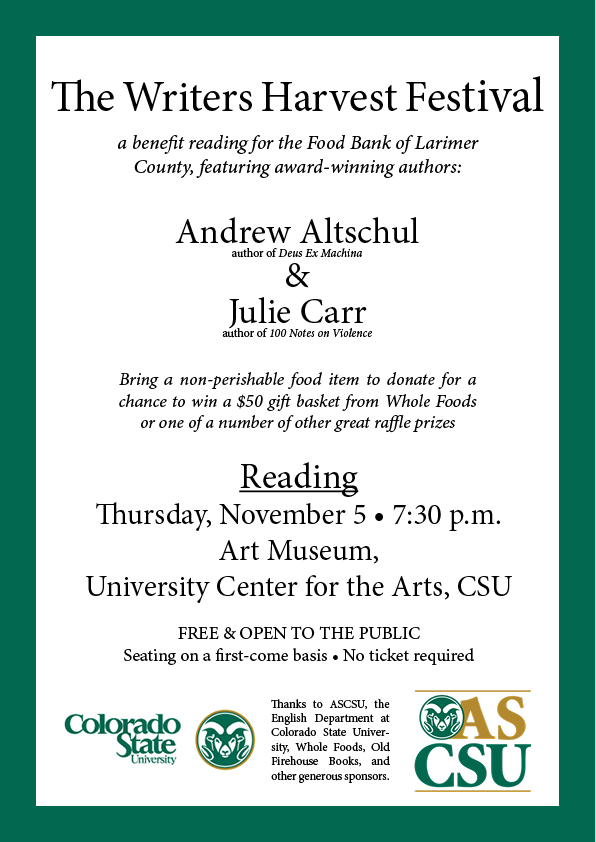“Darn it. I forgot the pickles.” I muttered at a stoplight. “And it’s too late to turn back now.” The Writer’s Harvest Festival was about to start, and my non-perishable food item sat at home on my coffee table.
Though I felt empty-handed upon entrance, the crowded Art Museum of the UCA allowed me to filter in among the crowd and mask my guilt. Stupid pickles.
Since the usual introducer, Camille Dungy, had her own reading, Dan Beachy-Quick quieted us down from the chatter that filled the Museum. Now, in the quiet, I realized how crowded the room had become, with little to no chairs remaining and people standing eagerly in the back. “It’s nice hearing people talk. It could be it’s own reading by itself,” Dan said. After welcoming the readers and thanking sponsors, he made the usual warnings not to touch the art, emphasizing that, “As much as we would like to take one of these off the walls, we must admire these as the other things we admire most: from an awkward distance.”
As Andrew Altschul, the English Department’s newest faculty member and author of Lady Lazarus, began his introduction, a baby cried softly in the background. “Go ahead, just cry,” he laughed. He dissipated the mild amusement and slight shock at this comment with, “That’s mine. This is the only time a baby can cry during one of my readings and I won’t be mad.”
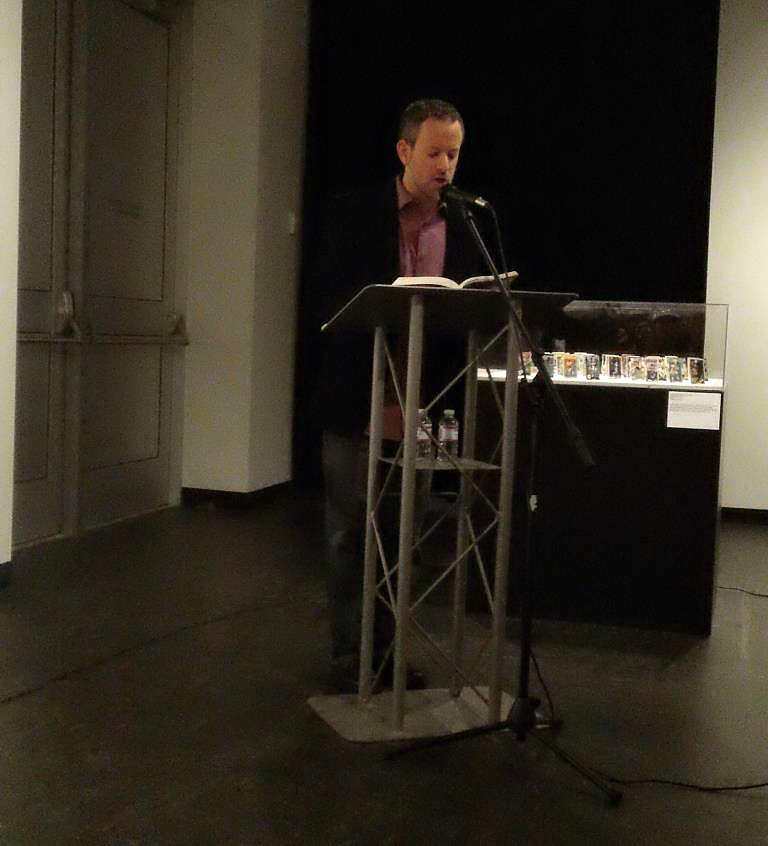
He began reading his short story, “The Future’s Not Ours to Seek,” about a man with the initial F. “It’s just F. That’s all there is. It doesn’t stand for anything,” Andrew joked. After F. moves into a new townhome with his wife, his new, state-of-the-art home phone will not stop ringing, giving out an odd, piercing tone whenever he answers. As F. gradually drives from customer service representative to customer service representative to gradual insanity, the air of the room felt stale and trapped with him among the wires, blinking boxes, and the limitless but useless information of the phone company. I felt my face crack with a slight smirk at a sly joke or irony, which only made me realize how it had previously been frigid with expectancy. By the end, the clapping felt like a sudden jolt, an interruption to the constant ringing I couldn’t get out of my own ears. The story had the fear and anxiety of any scary story around a childhood campfire, combined with the terrifying realities of adult life in modern America.
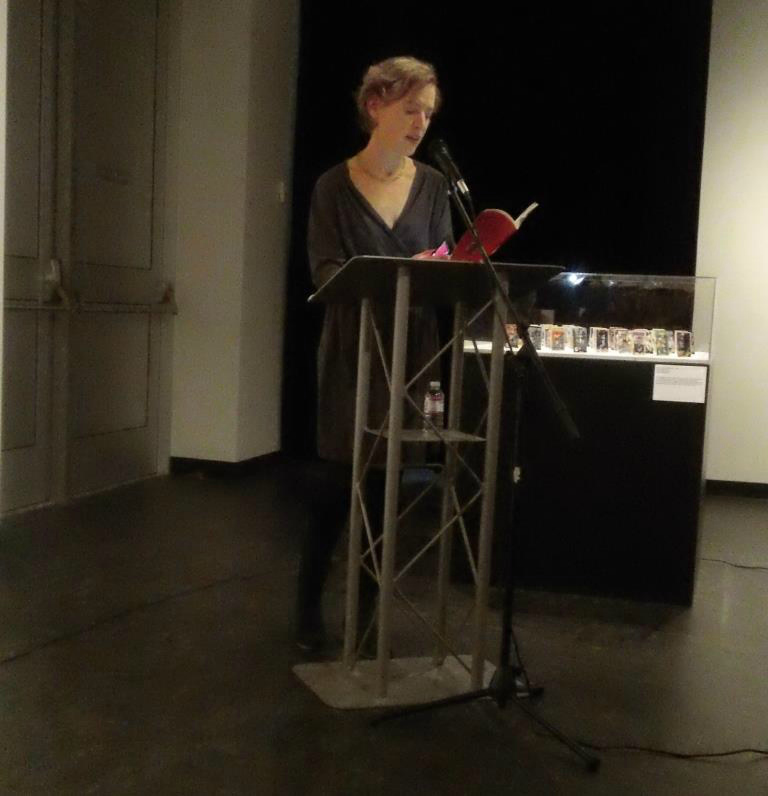
“That’s a great story – exactly like my life,” Julie Carr joked as she stepped up to the podium. The was the first time this year the Creative Writing and Reading Series was split between two authors, but the tone and flow of the fiction writer and the poet came together effortlessly. Her collection of seven poems, “Equivocal,” held a similar arresting beauty to Andrew’s story. A tension between promise and decay, phrases like “line your favorite jacket with bees wings and pockets with big bladders” brought me into a world festering both rot and beauty. Poems from her book 100 Notes on Violence carried the same types of gorgeous contradictions as lyrical responses to confrontations with brutality. Her final set of poems, excerpts from a future book titled Real Life: An Installation, seemed to manifest these oppositions wholeheartedly, with each poem depicted as an art installation in a museum showcasing glass shards and beautifully filmed pornography, layered visions of the visitors’ own organs, milk flowing from nipples in a room lined with nails. Her final poem, dedicated to Donald Trump, contemplated how interesting it is to “love something that doesn’t exist, except in the future.” Julie’s poems left me both disturbed and totally enraptured, her language combining visions of decay, deviance, and violence with renewal, purity, and compassion.
And then, after all that, came the prizes. The raffle prizes, that is. Those who had actually remembered to bring their non-perishable food items instead of leaving them hopefully on their coffee tables received tickets for a variety of wonderful hardbound books or paperbacks, even a basket of Whole Foods delectables. I left prize-less, but enjoyed watching people win and knowing the food would go to a good cause.

When I returned home, the solitary jar of green dills suddenly seemed to contain an amazing capacity for poetry. Until the phone rang.
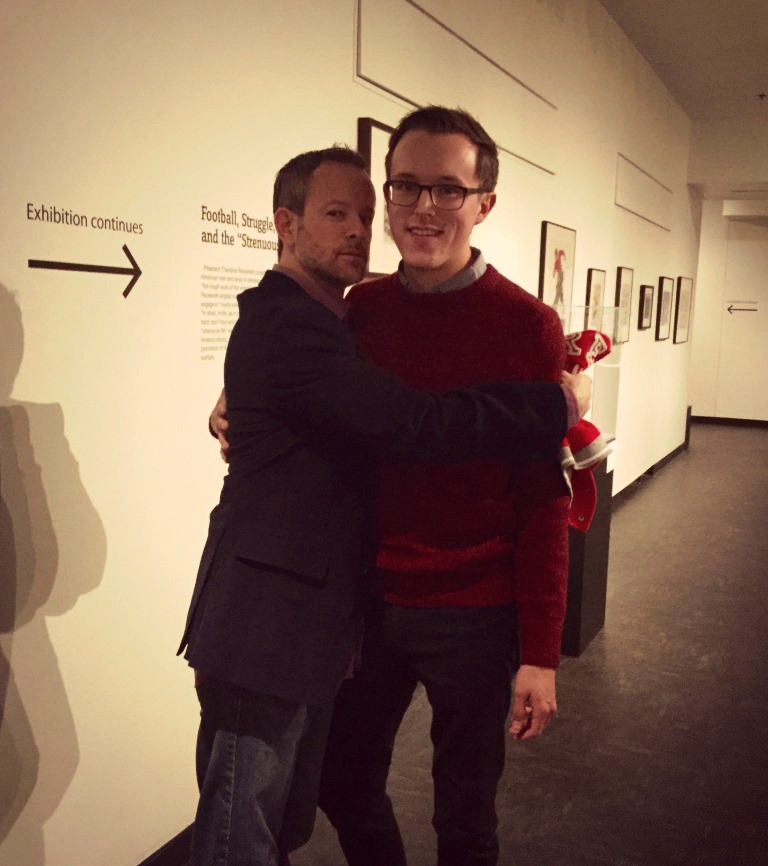
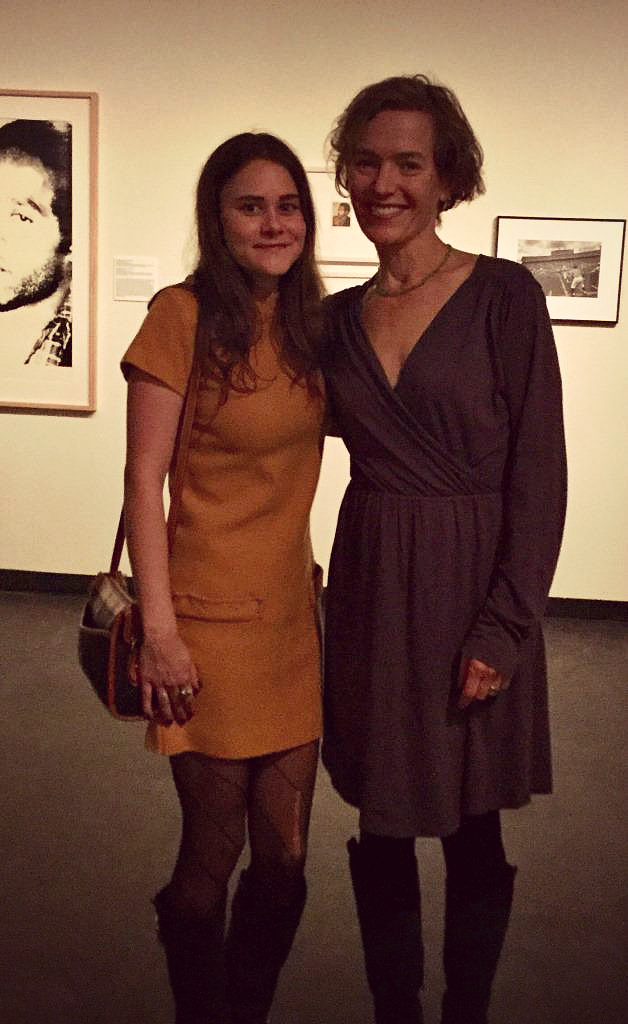
Next CSU Creative Writing Reading Series: Thursday, December 3rd
Sarah Hansen & Abby Kerstetter (MFA Thesis Reading)
